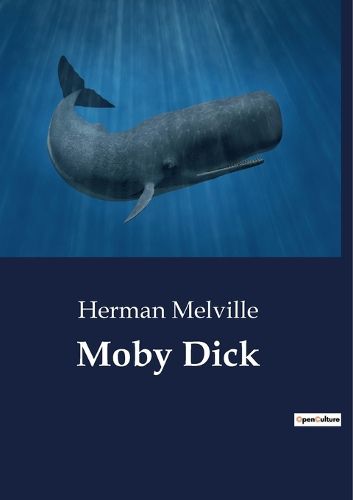Readings Newsletter
Become a Readings Member to make your shopping experience even easier.
Sign in or sign up for free!
You’re not far away from qualifying for FREE standard shipping within Australia
You’ve qualified for FREE standard shipping within Australia
The cart is loading…






This title is printed to order. This book may have been self-published. If so, we cannot guarantee the quality of the content. In the main most books will have gone through the editing process however some may not. We therefore suggest that you be aware of this before ordering this book. If in doubt check either the author or publisher’s details as we are unable to accept any returns unless they are faulty. Please contact us if you have any questions.
"Call me Ishmael" says Moby Dick's protagonist, and with this famous first line launches one of the acclaimed great American novels. Part adventure story, part quest for vengeance, part biological textbook and part whaling manual, Moby Dick was first published in 1851. The story follows Ishmael as he abandons his humdrum life on shore for an adventure on the waves. Finding the whaler Pequod at harbour in Nantucket, he signs up for a three year term without meeting the Captain of the ship, a mysterious figure called Ahab. It is only well into the voyage that Ahab's thirst for vengeance against the eponymous white whale Moby Dick-and the consequences-become clear. The novel is semi-autobiographical: Herman Melville had had his own experience of whaling, having spent a year and a half aboard a whaling ship and further years travelling the world in the early 1840s. Herman used the knowledge gained from his experiences and wide reading on the subject to furnish Moby Dick with an almost encyclopaedic quality at times. The literary style varies widely, veering from soliloquies and staged scenes to dream sequences to comprehensive lists of ships' provisions, but everything serves to further detail the world that's being painted. Presented here is the New York edition, which was published later than the London edition and reverted numerous changes the original publishers had made, as well as including the initially omitted epilogue.
$9.00 standard shipping within Australia
FREE standard shipping within Australia for orders over $100.00
Express & International shipping calculated at checkout
This title is printed to order. This book may have been self-published. If so, we cannot guarantee the quality of the content. In the main most books will have gone through the editing process however some may not. We therefore suggest that you be aware of this before ordering this book. If in doubt check either the author or publisher’s details as we are unable to accept any returns unless they are faulty. Please contact us if you have any questions.
"Call me Ishmael" says Moby Dick's protagonist, and with this famous first line launches one of the acclaimed great American novels. Part adventure story, part quest for vengeance, part biological textbook and part whaling manual, Moby Dick was first published in 1851. The story follows Ishmael as he abandons his humdrum life on shore for an adventure on the waves. Finding the whaler Pequod at harbour in Nantucket, he signs up for a three year term without meeting the Captain of the ship, a mysterious figure called Ahab. It is only well into the voyage that Ahab's thirst for vengeance against the eponymous white whale Moby Dick-and the consequences-become clear. The novel is semi-autobiographical: Herman Melville had had his own experience of whaling, having spent a year and a half aboard a whaling ship and further years travelling the world in the early 1840s. Herman used the knowledge gained from his experiences and wide reading on the subject to furnish Moby Dick with an almost encyclopaedic quality at times. The literary style varies widely, veering from soliloquies and staged scenes to dream sequences to comprehensive lists of ships' provisions, but everything serves to further detail the world that's being painted. Presented here is the New York edition, which was published later than the London edition and reverted numerous changes the original publishers had made, as well as including the initially omitted epilogue.